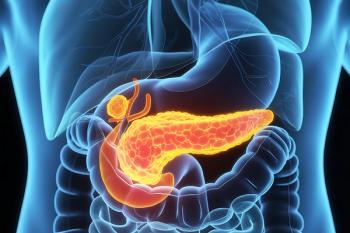
Majority of Diabetes Patients Would Adopt Remote Digital Monitoring
The findings are encouraging for future use of remote digital monitoring.
New study findings demonstrate 65% of patients with diabetes would adopt remote digital monitoring even if it offered no or modest health improvements compared with their current monitoring.
The findings suggested physicians should help patients select remote digital monitoring modalities that align with their preferences and are unobtrusive to their lifestyle to ensure adoption of such technologies.
Theodora Oikonomidi, M.Sc., and colleagues aimed to identify the minimum effectiveness patients reported they required to adopt 36 different remote digital monitoring scenarios. The team recruited adults with type 1 or 2 diabetes. Patients were directed to a study to consent to participate after learning the purpose, potential harms, and intended statistical treatment of the collected data.
Three investigators selected vignette factors and factor levels to develop the study vignettes based on a review of monitoring tools available on the market and by consultation with diabetologists. The scenarios described combinations of digital monitoring tools (glucose, physical activity, and food monitoring), duration and feedback loops (feedback in consultation vs real-team tele-feedback by a healthcare professional or by AI), and data handling modalities (by a public vs private company). The combinations made up 36 vignette scenarios.
Participants assessed three randomly selected vignettes by responding to two questions to learn the minimum health benefit they would require to adopt the remote digital monitoring as their usual care. Responses were recorded using a five-point scale ranging from “it could be much less effective” to “it would have to be much more effective.”
Overall, 1,010 participants — 57% women — assessed at least one vignette. There were 2,860 vignette assessments collected. In 36% of assessments, participants would adopt remote digital monitoring only if it was much more effective at reducing hypoglycemic episodes compared with their current monitoring. In a majority of assessments (65%), participants would adopt remote digital monitoring if it was just as or somewhat more effective.
Main factors associated with required effectiveness were food monitoring (P = .009), real-time tele-feedback by a healthcare professional (P = .001), and perceived intrusiveness (P <.001).
The minimum required effectiveness varied among participants. Most scenarios (94%) were simultaneously required to be just as or less effective by at least 25% of participants and much more effective by at least 25% of participants.
The findings were encouraging for the future use of remote digital monitoring, Oikonomidi and the team wrote. Such technology holds promise for patients and physicians. Technological developments may lead to less intrusive monitoring and reduce the magnitude of health benefits required to adopt remote digital monitoring. Further, patients who require substantial benefits to adopt remote digital monitoring could benefit from interventions designed to reduce barriers to the adoption of the technology.
The study, “
Newsletter
Get the latest industry news, event updates, and more from Managed healthcare Executive.




















